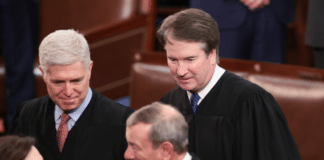The University of Michigan, home to the country’s largest and most expensive diversity, equity, and inclusion (DEI) program, is under fire for its reported failures and escalating tensions on campus. With over $250 million invested since 2016 and an annual operating budget of $30.68 million, the program is facing criticism for fueling divisions while failing to achieve its stated goals.
The university’s Collegiate Fellows Program staffed its DEI initiatives with individuals specializing in critical race theory, gender ideology, and ethnic studies. Staff biographies, now removed from the program’s website, showcased controversial academic focuses, including “queer histories,” “black feminism,” and other intersectionality-driven themes.
One assistant professor’s work studied how “trans Latinas use their bodies to resist forms of labor” and wrote on “sex working trans Latinas” to challenge what she called “racist-cisgenderism.” Another professor examined “antiracist and queer revisions of Aristotle’s ancient theory of rhetorical ethos.” A sociology assistant professor argued that “Southern wife-beating laws” have roots in white supremacy. Another fellow’s research sought to explore how Jews and Muslims could relate through shared experiences of “queerness.”
As public scrutiny mounted, the university removed its DEI staff directory. The webpage now redirects to a generic landing page for the fellowship program, reportedly an attempt to shield the program from further backlash.
Despite its massive investment, the program appears to have worsened racial and gender relations on campus. Complaints regarding race, gender, and religion have risen significantly, while students and staff report being less likely to engage with those from different backgrounds, according to multiple reports.
The growing dissatisfaction has led university leadership to reconsider the future of its DEI office. The Board of Regents, the university’s highest governing body, is expected to vote on whether to defund or restructure the program as early as December 5. Faculty Senate Chair Allen Liu noted in an email to faculty members that the vote could determine the program’s fate.
As debates surrounding the effectiveness and impact of DEI programs intensify nationwide, the University of Michigan’s case has become a flashpoint, raising questions about the practicality and outcomes of such massive investments in the name of equity and inclusion.





